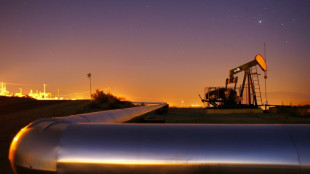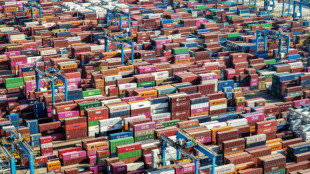
| RYCEF | -0.42% | 7.07 | $ | |
| RBGPF | 100% | 60.49 | $ | |
| JRI | -1.16% | 12.08 | $ | |
| RELX | -0.86% | 46.37 | $ | |
| RIO | 0.36% | 58.84 | $ | |
| BCC | -1.31% | 115.88 | $ | |
| CMSD | -0.65% | 23.25 | $ | |
| SCS | -3.01% | 10.97 | $ | |
| CMSC | -0.79% | 22.92 | $ | |
| NGG | -3.3% | 56.13 | $ | |
| VOD | -1.99% | 8.05 | $ | |
| GSK | -1.99% | 33.09 | $ | |
| BCE | -2.92% | 22.96 | $ | |
| AZN | 0.64% | 67.01 | $ | |
| BTI | -2.34% | 35.9 | $ | |
| BP | 0.54% | 31.29 | $ |

Argentina will honor economic goals agreed with IMF: new minister
Argentina's new economy minister said Monday the country would honor fiscal deficit goals and other commitments made under a deal struck with the IMF to refinance a debt of some $44 billion.
Under the agreement negotiated by Silvina Batakis' predecessor Martin Guzman, who resigned suddenly nine days ago, Argentina committed to reducing its fiscal deficit from 3.0 percent of GDP last year to 2.5 percent in 2022, 1.9 percent in 2023 and 0.9 percent in 2024.
"The goals agreed with the IMF are maintained," Batakis said in Buenos Aires at her first press conference since taking office a week ago.
"It is an agreement we signed as a state and we must comply."
In 2018, under the government of conservative President Mauricio Macri, the International Monetary Fund granted its biggest-ever loan of $57 billion to Argentina.
The country received $44 billion of that amount and Macri's successor Alberto Fernandez refused to accept the rest.
As the country struggled to repay its debt, a refinancing agreement was reached this year after protracted negotiations.
Guzman resigned suddenly on July 2 amid a power struggle between Argentina's president and vice president, sparking fresh uncertainty in Latin America's third largest economy.
The peso fell sharply last Monday against the US dollar after Batakis' appointment.
On Monday, the 53-year-old said there was a need to "give order and balance to the public finances," and vowed that "we will not spend more than we have."
Among her proposals: to reduce energy subsidies, which in 2021 amounted to $11 billion or 2.3 percent of GDP, by applying a sliding scale to prices for gas and electricity based on income.
In 2020, the Argentine economy contracted 9.9 percent before rebounding the following year by 10.3 percent.
For this year, the IMF predicts growth of 4.0 percent.
At the time the refinancing agreement was reached, Argentina's inflation was projected to reach 52 percent in 2022 -- already one of the highest in the world.
Since then, the war in Ukraine has sent prices soaring worldwide, and Argentina marked year-on-year inflation of 60 percent in May.
"The agreement was signed before the rise in global inflation," said Batakis, adding a new estimate for 2022 was being compiled.
"It is a methodological issue we are evaluating, not a shifting of the goal," she insisted.
A survey by Argentina's central bank of projections for 2022 inflation put the rate at some 76 percent.
E.Janssens--JdB



